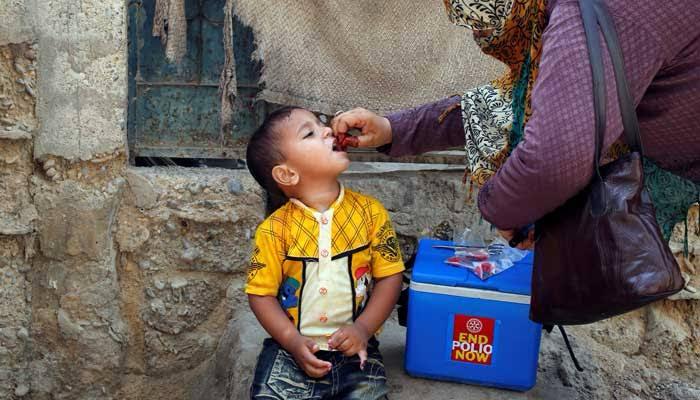As Pakistan grapples with a rising number of polio cases, Interim Health Minister Dr. Nadeem Jan has revealed that a staggering 90% of the country’s polio cases can be attributed to infections “imported from Afghanistan.” These remarks come in the wake of two more samples testing positive for the poliovirus in Pakistan, underscoring the urgency of addressing this cross-border health challenge.
Recent sewage samples collected from Dera Bugti in Balochistan and Peshawar have shown traces of the poliovirus similar to those found in Afghanistan. Pakistan and Afghanistan are the only two countries where polio remains endemic, making cross-border cooperation essential to combat this persistent threat.
While significant progress has been made in containing wild poliovirus transmission, seven districts in southern Khyber Pakhtunkhwa continue to report cases. The World Health Organization reported in August that all reported cases in 2021 had originated from these districts. Unfortunately, this year has seen an increase in cases, with three new instances reported in Peshawar, Bannu, and Balochistan’s Dera Bugti.
In response to this concerning trend, the Pakistani government has launched a five-day polio vaccination drive targeting approximately 44 million children nationwide. This effort will involve around 350,000 polio workers administering vital anti-polio vaccine drops to children aged 0-5 years.
Addressing the surge in polio cases during an interview, Health Minister Dr. Nadeem Jan emphasized the importance of vaccination, stating “Our surveillance is optimal. Of the 34 samples that we have received, 90% have come from Afghanistan … our own are even less than 10%.” Dr. Jan highlighted the dangers of this imported virus persisting and urged swift vaccination efforts to prevent its further circulation and potential adaptation within Pakistan.
The recent cases in Khyber Pakhtunkhwa were attributed to vaccine refusals, shedding light on the critical role community education and acceptance play in the battle against polio.
During the interview, Dr. Jan also discussed the government’s efforts to combat the proliferation of counterfeit medicines. He revealed that a system for verifying the barcodes of medicines had been devised, but implementation challenges remained. Dr. Jan noted the active roles of the Drug Regulatory Authority of Pakistan and the Health Department in curbing the sale of fake medicines. He acknowledged that while there were lapses, efforts to eradicate the network of counterfeit medicines had commenced, with crackdowns underway.
In response to questions regarding the return of former Prime Minister Nawaz Sharif to Pakistan on October 21, Dr. Jan emphasized that it was a political matter, and the health ministry would abide by the law and Constitution in handling the situation.
This revelation from Pakistan’s Health Minister sheds light on the urgent need for cross-border cooperation in combating polio and highlights the importance of vaccination efforts to protect the nation’s children. While the battle against polio continues, Pakistan’s commitment to eradicating counterfeit medicines underscores its dedication to public health and safety.


